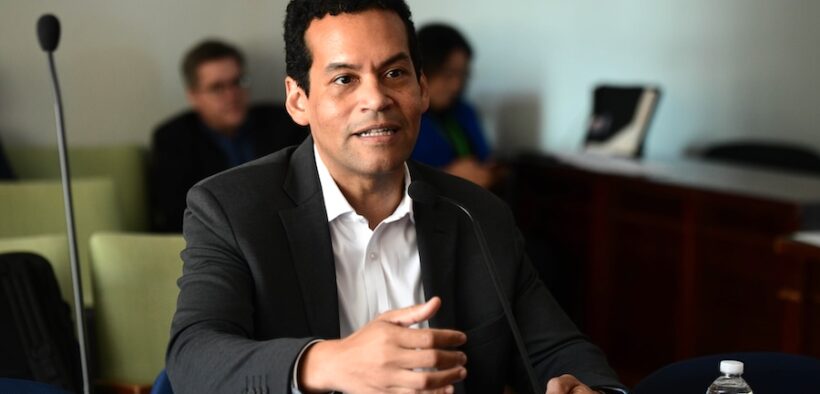Fight brews over Puerto Rico hotel tax money

The Puerto Rico Tourism Co. has raised objections to three legislative proposals that would reallocate revenues from the hotel room occupancy fee — commonly known as the room tax — to pay for initiatives ranging from new equipment for the Police Bureau to enhancements in the Porta del Sol tourism region.
While acknowledging the “legitimate concerns” behind the bills, the agency warned that diverting funds would jeopardize resources already earmarked for promoting Puerto Rico as a tourist destination and fulfilling commitments to the Convention District. Officials said it could also violate the government’s certified fiscal plan.
House Bill 669, introduced by New Progressive Party Rep. Joel Franqui-Atiles, would assign 1% of room tax collections to acquire security equipment for police. Franqui-Atiles said the measure would help address concerns about public safety, which he argued could undermine Puerto Rico’s international appeal.
“To remain competitive as a global tourist destination, public security must be integrated into our model for economic and tourism development,” Franqui-Atiles wrote in the bill’s explanatory statement.
But Raúl Márquez, legislative adviser for the Tourism Co., testified before the House Tourism Committee — chaired by Rep. Axel “Chino” Roque-Gracia of the NPP — that any reduction in room tax revenues would weaken the agency’s and Discover Puerto Rico’s ability to market the island abroad.
Currently, the Tourism Co. allocates $3.5 million annually to the Convention District, $25 million by law to Discover Puerto Rico, and another $5 million in matching funds. An additional $28 million comes through the budget certified by the Financial Oversight and Management Board.
“These allocations represent a substantial government commitment to strengthening Puerto Rico’s international visibility, with the room tax serving as a central financing tool,” Márquez said.
Fernando Rodríguez, interim executive director and chief financial officer of Discover Puerto Rico, added that using the room tax for unrelated expenses could set a precedent. He said that for every dollar invested in destination promotion, the economy generates $56 and the government collects $6 in room tax. Total tourism revenues now reach an estimated $1.3 billion.
Spotlight on Porta del Sol
Another measure, House Bill 558, filed by Popular Democratic Party Reps. Lilibeth Rosas-Vargas and Reinaldo Figueroa-Acevedo, would direct at least 50% of room tax revenues collected in the Porta del Sol region toward its development.
The lawmakers argued that municipalities in western Puerto Rico, which make up the 17-town Porta del Sol destination, contribute significantly to the tax but often see funds diverted elsewhere.
The Tourism Co. cautioned, however, that mandating such a redistribution would have “serious implications” for the fiscal plan and undermine centralized planning.
“Requiring that half of the revenues from a specific region be spent there, without performance or return-on-investment criteria, severely limits the [Tourism Co.’s] flexibility,” Márquez said.
The committee also reviewed House Bill 761, another measure filed by Rosas-Vargas and Figueroa-Acevedo, which would expand property tax exemptions of 25% to 50% for 10 years on tourism projects established in Porta del Sol.
While the Tourism Co. agreed the measure could stimulate tourism in the region and complement existing marketing efforts, it advised clarifying whether the current law’s exemptions apply to personal property, real estate or both. It also recommended consulting fiscal authorities on the plan’s viability.
Roque-Gracia requested that both the Tourism Co. and Discover Puerto Rico submit fiscal impact analyses of the three bills within five business days. The evaluations will feed into deliberations for the next budget.




